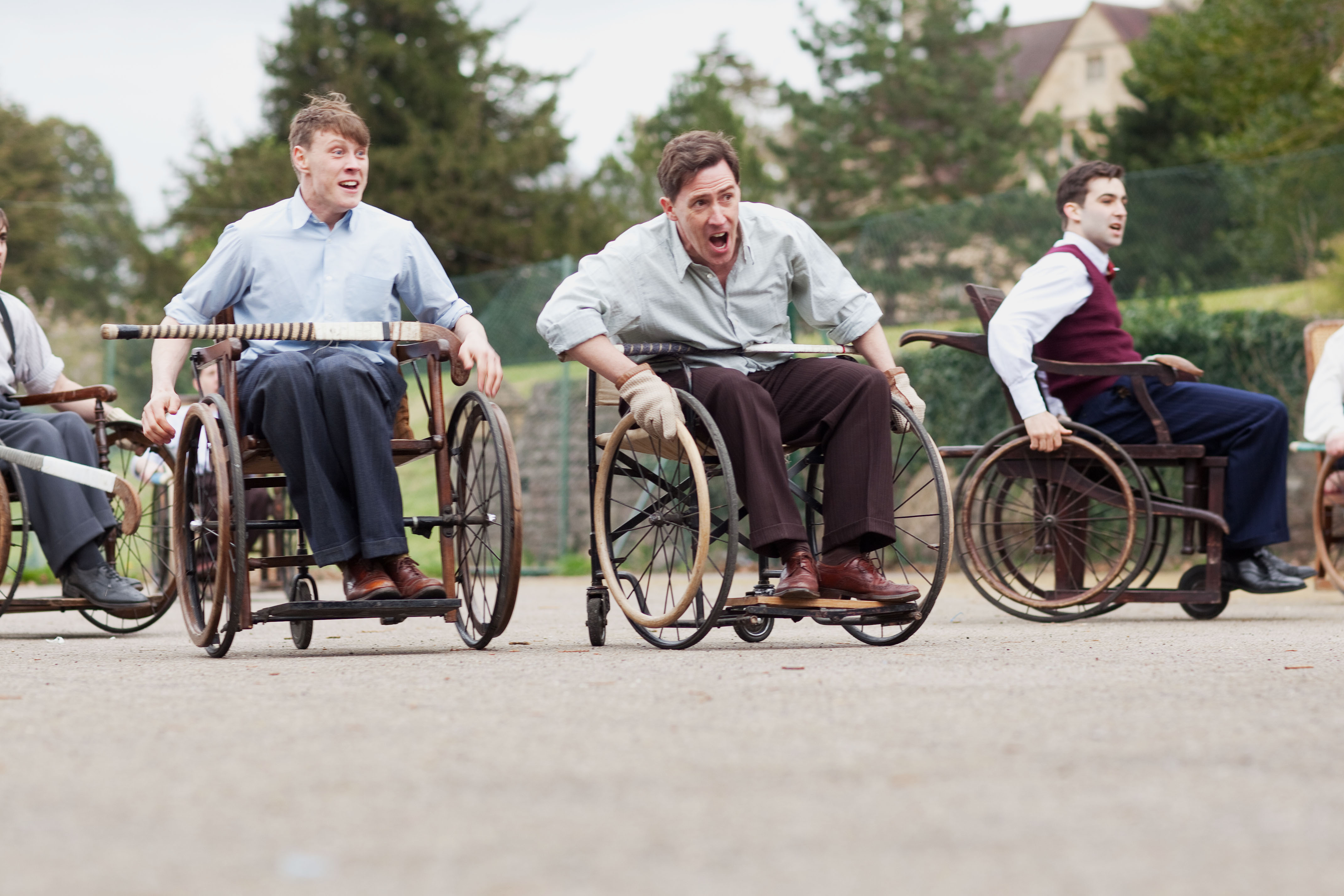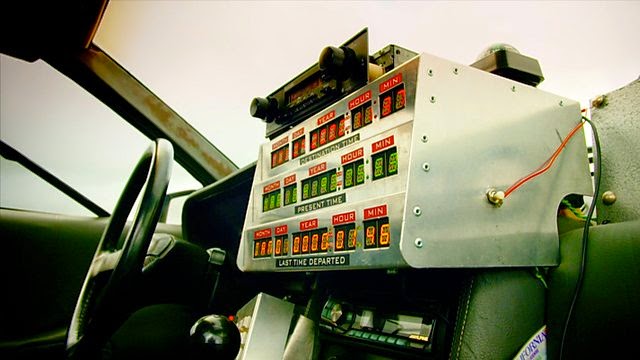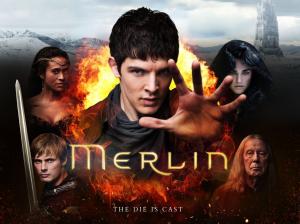Written by Matthew Kilburn

The Best of Men
Written by Lucy Gannon
Directed by Tim Whitby
Broadcast on BBC Two - 16 August 2012
Whitby Davison Productions were once one of the standard bearers of period television drama in Britain, producing several series of
Bramwell for ITV via Carlton. This success was followed by the less well-remembered and less admired
Servantsfor the BBC. After almost a decade the partnership of Harriet Davison and Tim Whitby return to their old stamping ground of historical drama with a medical subject. With them is Lucy Gannon, still a respected television writer and once the toast of ITV for her 1990s hit series
Soldier Soldier,
Peak Practice and the aforementioned
Bramwell, but whose first play,
Keeping Tom Nice, concerned the suicide of a father of a disabled son.
The Best of Men returns Lucy Gannon to the subject of disability with the tale of Ludwig Guttmann, a refugee Jewish German neuroscientist from Breslau (now Wroclaw, Poland), who after five years relative inactivity in Oxford was returned to active hospital life in 1944 as founding director of the National Spinal Injuries Unit at Stoke Mandeville Hospital in Buckinghamshire, leading (among much else) to the foundation of what would become the Paralympics.
The BBC had chosen to shape much of the July television schedule around the build-up to the 2012 Olympics, where they were the only traditional broadcaster to have the rights to show the games in the United Kingdom.
Bert and Dickie (reviewed on this site by Matt Hills) was an example of this. With
The Best of Men, the BBC now join the build-up to the Paralympics, where they only have sound broadcasting rights. By contributing this play, the BBC are arguably demonstrating that they remain at the centre of national cultural life and have responsibilities even towards events where they are not the sole intermediary between the games and the remote public.
National cultural life is indeed important to this play - and I use the term play rather than film because while cinematic in picture grain and use of music the staging and careful use of locations points to its heritage in television drama - because it depicts the struggle of its protagonist Ludwig Guttmann to make both the authorities and wider society accept that his patients are not “moribund incurables”, as dialogue has it, but potentially active and useful men, who can be put to work. Sport is both an end in itself and a means to an end. In the words of the historical Ludwig Guttmann himself, as quoted on the website of the
British Paralympic Association: "The aims of sport for the disabled, as well as the non-disabled, are to develop mental activity, self-confidence, self-discipline, a competitive spirit and comradeship." More prosaically, as
The Best of Men's Guttmann says, it is the right of his patients to have the same problems as everyone else, to pay rent and taxes, and have more besides, and not to be treated as “smiling, dependent children.”
The build-up to the London Paralympics has seen a determined attempt to make Ludwig Guttmann a more widely-recognised historical figure. A statue of Guttmann was unveiled at Stoke Mandeville Hospital in June. One of the Olympic mascots, Mandeville, is named after Stoke Mandeville to recognise its role as the birthplace of the Paralympics. A range of publications have run stories about Guttmann, inspired by this play and by the imminent Paralympics. The challenge
The Best of Men faces is to have the self-confidence and self-discipline to assert its own identity and not simply be a smiling trailer.
In the halcyon days of studio drama, this topic might have inspired a six-part serial, but nowardays budgets are tight and the filmic model is preferred. The result is a vastly simplified narrative which condenses the events of four years into ninety minutes and adopts a lot of familiar dramatic devices while still allowing room for some subtlety. In this, there are echoes of the personality of the historical Guttmann himself - this play's Guttmann refers in detail to his past in Germany and the unfolding only once, when he needs to assert his authority over the truculent physical training instructor Quartermaster Hill ('Q', of course). Even at home he insists to his wife (an unrecognisable Tracey-Ann Oberman, whose blousy screen persona from
EastEnders and
Doctor Who days is absent here) that even endearments must be in English. Guttman's difficulties in adapting to wartime Britain are more often shown in his discreet discarding of Sister Edwards's sugary tea (despite the ration?) or the stiffness with which he sits outside the pub, clutching a pint of bitter alongside Q. The Britain of the mid-1940s is depicted as unaware of the mass murder of the Jewish population or at least of the implications of official anti-Semitism for the futures of Germany and the “bloody Kraut” Guttmann. The contrast with the knowledge of the viewers of 2012, for whom the Holocaust is part of education and perhaps the defining fact of the Second World War, is an irony pressed gently.
Eddie Marsan's portrayal of Guttmann is as measured and determined as the man himself might have been, emphasising a persistence which knows when to be quiet and when to be loud, and which never loses a sense of what it means to be a refugee. The patients and staff at the spinal unit become Guttman's new extended family, addressing him as 'Poppa', and there are a few glimpses of how his domestic life suffers but remains sustaining.
The two other principal male characters are patients. The inclusion of Rob Brydon is a recognisable personality name might be interpreted as casting as marketing, but this is a channelling rather than a repeat of one of Brydon's comic turns. Brydon's Wyn Bowen is himself a performer - “the mighty sausage dog of the valleys” - now emasculated and consoling himself with cynical jibes and doses of sedative. His rediscovery of a sex life during his weekend at home in Port Talbot is treated lightly - the details of negotiation between husband and wife are never discussed - but its importance is in communicating that one can be a whole person with paraplegia.
The other male lead is George Mackay as William Heath. Twenty-year-old William, paralysed on his second day with his regiment, is the audience's entry point to life in the spinal unit. His dream of dancing on a hilltop with his girlfriend Ruth, intercut with his arrival at Stoke Mandeville in a sand-filled 'coffin' and with Guttmann's walk into his ward for the first time, support the opening credits. The transformation of his expectations are also those of wider society; his father, grateful for his place as a groundsman at a leading public school which has seen his son educated for free alongside the sons of the nobility, learns slowly and with resistance that he has no need to mourn his son, or treat him as a perpetual child. To recall the title of Lucy Gannon's first play, William is determined that he will not be kept nice.
Lucy Gannon's script chooses to portray Ludwig Guttmann as a plucky individualist, battling alone to overturn decisions made by a backward-looking collective. His antagonists are a general who takes the line of least resistance to overwhelming forces and a surgeon who prefers to immobilise spinal patients and let them die out of sight. The latter character, Dr Cowan, is too broad a caricature of a pompous reactionary and is associated with some clumsy signposting, as when one of his students points out an obvious gag about surgical shock. Though this portrayal undermines the barely-disguised anti-Semitism which Cowan expresses, it also weakens its portrayal and is one of the less-successful aspects of the production.
Producer Hannah Davison wrote in
Broadcast that Lucy Gannon is averse to research. It's unsurprising that what emerges is impressionistic, but Gannon was employed for her authorial voice, not as a historian. The closing compilation of newsreel footage about the evolution of the Stoke Mandeville Games into the Paralympics shows that there were women participants from an early stage, but as the title indicates this play considers men, male coping methods, male attitudes to adulthood and sex. While histories of the National Spinal Injuries Unit (never named as such here) and the Paralympics emphasise the role of Joan Scruton, Guttmann's assistant and secretary, she is not included in this fictionalisation of events. Women are paralleled with being able-bodied; in his imagination, William caresses Ruth's legs. Sometimes the drama concerns the education of men away from objectification and towards a more subtle and sophisticated awareness of desire, feeling and identity, which Guttmann explicitly associates with women. This isn't the entirety of Gannon's viewpoint: Sister Edwards and her unqualified assistant Nurse Carr begin as a pessimistic Greek chorus waiting for Guttmann to give in and accept that his methods are hopeless and will only cause distress to patients and staff alike, but become disciples, proclaiming Guttmann's good news of rehabilitation through physical fitness, as well as becoming better people. With not much to work with, Niamh Cusack convincingly displays the trauma Sister Edwards experiences as she learns to communicate with her disabled charges, rather than just sedate them.
The Best of Men uses familiar methods to tell a story which it expects to be unfamiliar to its audience. If it's a wine (not, perhaps, Wyn's wife's rhubarb) it leaves hints of Potter and Rudkin on the palate. Primarily, though, it is a Gannon-authored piece, with heroes from unextraordinary backgrounds, looking forward to their prefabs, realising that conforming to the expectations of the inter-war settlement is a wrong turn, learning that they can be men and Britons still even when the outward signs of masculinity and national strength have been taken from them. Ludwig Guttmann becomes not just the advocate of a revolution in the treatment of spinal injury patients, but the prophet of a steadily more inclusive Britain and, through the Stoke Mandeville Games and the Paralympics, the world. History in broad strokes it may be, but it is certainly effective as a contribution to a national refoundation myth, and making the forthcoming Paralympics central to that myth, rather than marginalised. That the final compilation of news footage and photographs depicting the development of the Paralympics detracts slightly from the whole illustrates that
The Best of Men has enough upper body strength to live on its own terms.





 The Best of Men
The Best of Men



